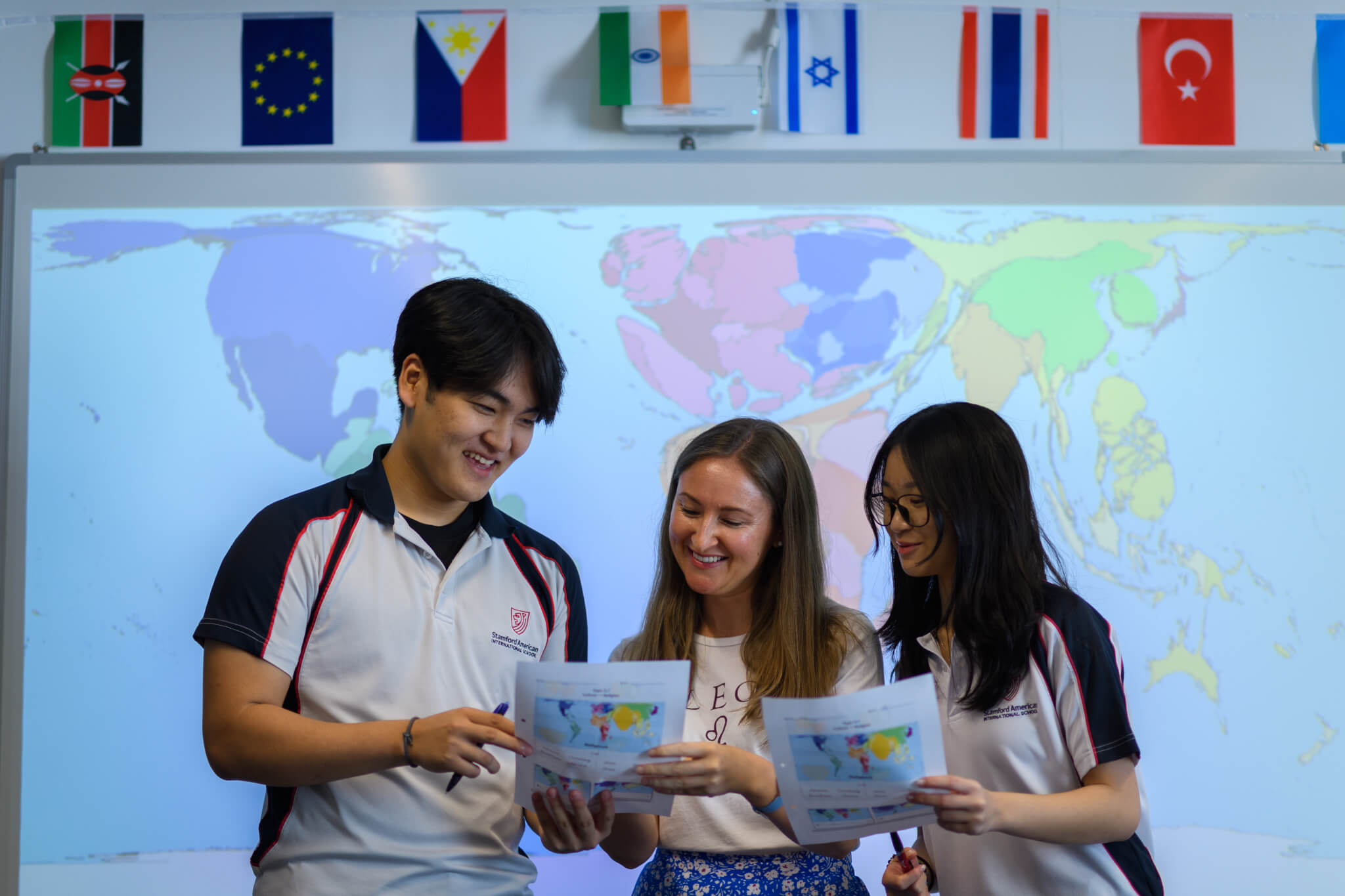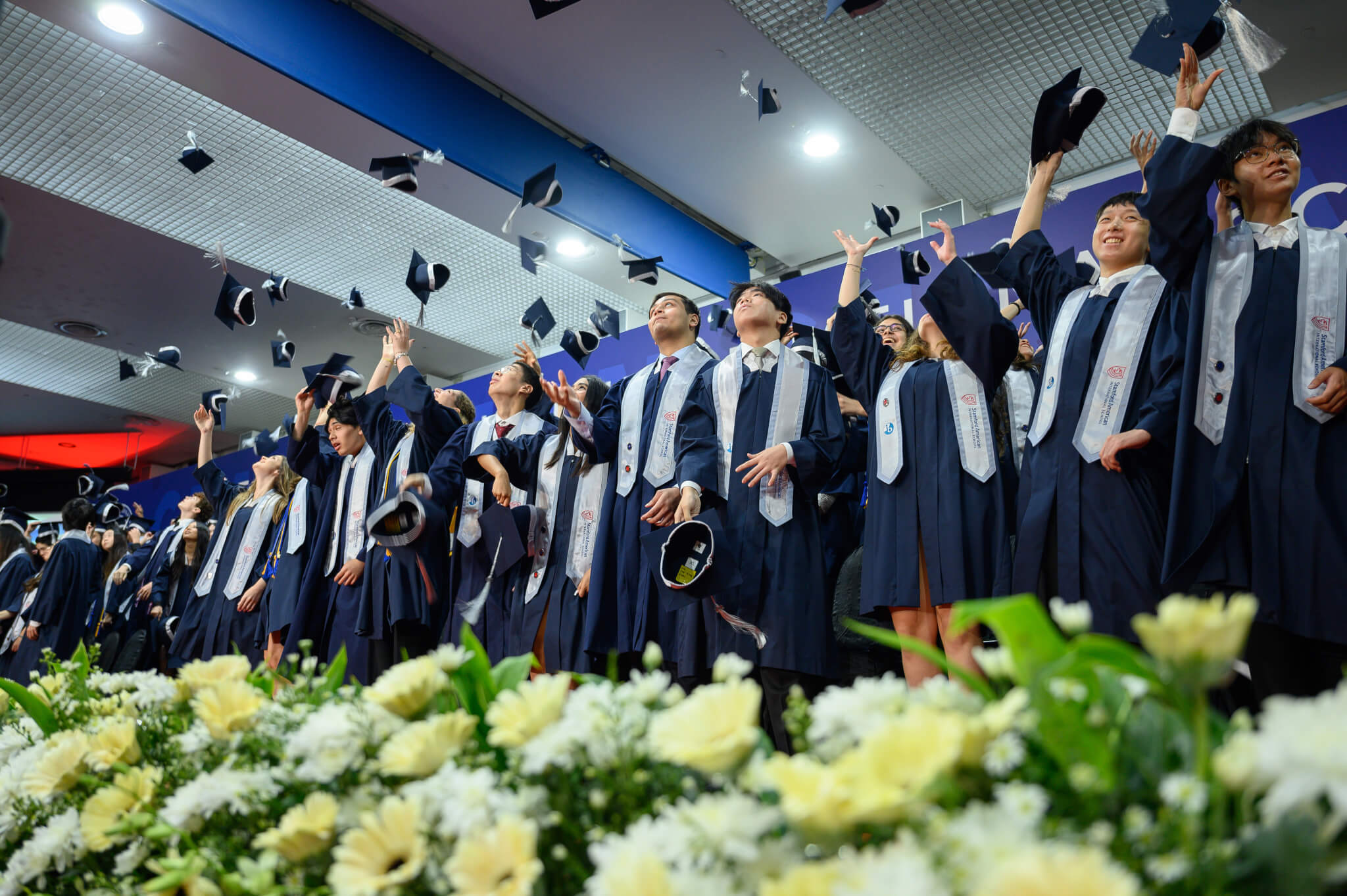International schools are known for nurturing well-rounded individuals equipped with the skills needed to thrive in an ever-changing world. This is particularly true for institutions that follow the International Baccalaureate (IB) Programme, which emphasizes high academic standards, global awareness, and personal growth. These institutions not only help students develop critical life skills but also empower them to pursue their personal and professional aspirations in a challenging academic environment.
In this feature, we will explore some of the key habits that students can cultivate in an international school setting.
Essential Habits of Accomplished Students in International Schools:
- A Lifelong Passion for Independent Learning
- Critical Thinking and Complex Problem-Solving Skills
- Cultural Awareness and Open-Mindedness
- Adaptability and Resilience
- Ability to Manage and Maximize Time
- Proactive Community Engagement
1. A Lifelong Passion for Independent Learning
Self-directed learning is a core principle of international school curricula, particularly within the IB Programme. This program is distinguished by its focus on teaching students how to take ownership of their education. For instance, Theory of Knowledge (TOK) is a prerequisite course for high school students pursuing the International Baccalaureate Diploma Programme (IBDP), and it invites students to explore the nature of knowledge, helping them reflect on how they form their understanding of the world. Through this reflective journey, students gain insight into their own biases and develop a deeper appreciation for diverse perspectives.
International school students are also encouraged to personalize their educational journey and explore courses of-interest at a deeper level. Beyond the standard IBDP pathway, High School students at Stamford American are also able to pursue an individualized pathway, with options enroll in the following:
- Stamford Courses
- Business & Technical Education Council (BTEC) Courses
- Advanced Placement (AP) Courses
Younger students may also benefit from flexible learning options. Those enrolled in the Foundational Academic English Program can choose between teacher-led or self-guided pathways for their learning, with the latter more suitable for motivated students seeking greater schedule flexibility.
This emphasis on autonomy cultivates a proactive mindset and encourages students to take an active role in shaping their educational journey. By fostering a sense of ownership over their learning, students become more motivated and engaged. This increased investment leads them to ask more profound questions and seek knowledge beyond the standard curriculum. The process of researching and articulating their findings not only enhances their ability to learn effectively but also develops skills that transcend rote memorization.
The lifelong drive to learn fostered by an international school education provides significant practical benefits. Students who cultivate a deep understanding of their learning process gain the confidence and independence to tackle complex challenges in the future. This enduring habit of inquiry ensures that IB graduates remain curious and adaptable, effectively navigating new situations throughout their lives.

2. Critical Thinking and Complex Problem-Solving Skills
Critical thinking is another core habit developed in international schools. This skill involves analyzing information, questioning assumptions, and evaluating diverse perspectives before making decisions. International schools facilitate this process by bringing together individuals from various backgrounds and viewpoints, enabling students to explore global issues and engage in meaningful dialogue. The IB curriculum further enhances this ability by prompting students to look beyond their immediate experiences and consider the perspectives of others when addressing complex problems.
Bilingual programs are one of the ways that international schools foster critical thinking. At Stamford American, the Bilingual Program integrates Mandarin and English across different levels from Pre Kindergarten – Grade 5. Exposure to two languages of instruction trains students to adapt to diverse cultural contexts and enhances cognitive flexibility. Additionally, facilities like the Makerspace and the Innovation Center provide hands-on opportunities for students to tackle practical challenges, further developing their problem-solving skills.
Critical thinking and problem-solving are relevant skills that significantly impact success across multiple domains. In Higher Education, these abilities allow students to excel in rigorous coursework and conduct effective research. In the professional realm, they are essential for making informed decisions and driving innovation to tackle pressing challenges. Ultimately, the capacity to think critically and solve problems empowers individuals to make sound decisions and achieve their goals.

3. Cultural Awareness and Open-Mindedness
Cultural awareness and open-mindedness are central to the ethos of international schools and the IB curriculum. Students in these environments engage with a rich tapestry of cultures, languages, and perspectives every day. This immersion fosters a global mindset, helping them appreciate and understand diverse backgrounds. As cultural melting pots, international schools promote respect and empathy, enriching students’ perspectives and deepening their appreciation for global diversity.
At Stamford American, we offer a variety of activities that encourage engagement with the global community. One highlight is the International Fiesta, an annual festival featuring cultural booths organized by our dedicated parent volunteers. Our young learners also benefit from Specialist Music and Language Programs, which include enhanced English language support and bilingual classes for students from Pre-K to Grade 5. These programs celebrate students’ own cultures while encouraging them to challenge preconceived notions and embrace diverse perspectives from an early age.
In today’s interconnected world, having a global perspective is a significant advantage. Culturally aware and open-minded individuals are better equipped to understand global issues and communicate effectively with people from diverse backgrounds. These skills empower them to collaborate seamlessly in multicultural teams and build meaningful connections across various cultural contexts.

4. Adaptability and Resilience
Adaptability and resilience are vital traits for success in today’s rapidly changing world. Students at international schools often cultivate these qualities as they navigate diverse environments, adjusting to new countries and educational systems while overcoming various challenges.
At Stamford American, we understand the importance of support during this transition. We offer extensive support to expatriate families transitioning to live in Singapore by integrating into the vibrant community of international learners. To promote student well-being, we implement the Second Step social program, which equips students with essential skills to manage their emotions and build healthy relationships. As part of the global Cognita Family, we leverage a comprehensive understanding of student well-being and its significant impact on learning. This support system empowers students to cope effectively with challenges and recover gracefully from setbacks.
Additionally, the IB curriculum provides a robust framework for enhancing adaptability and resilience through its rigorous academic standards and emphasis on personal development. IB students are encouraged to step outside their comfort zones, take risks, and learn from their experiences, fostering both growth and the ability to navigate challenges. Students also benefit from guidance provided by high school teachers while tackling college-level coursework, ensuring they have the support needed to succeed in their endeavors.
The skills of adaptability and resilience are invaluable throughout students’ educational journeys, professional careers, and personal lives. In higher education, these qualities help students manage academic pressures and embrace new learning opportunities. Similarly, in the workplace, the ability to adjust to change and overcome obstacles is crucial for success and personal growth.

5. Ability to Manage and Maximize Time
Time management is a critical skill that students develop as they navigate the demands of an international school’s rigorous curriculum. To take full advantage of the diverse opportunities available while balancing academic responsibilities with personal interests, students must learn to manage their time effectively.
For instance, a student may find themselves preparing for a math exam, rehearsing for a school play, and volunteering for a community service project all in the same week. Successfully balancing these responsibilities requires discipline and careful planning. Mastering this balance not only cultivates an essential habit for personal and professional success but also supports a healthy work-life balance.
By developing strong time management skills during their education, students are better prepared for success in higher education and their future careers. On a personal level, this ability empowers individuals to pursue their passions and lead fulfilling, well-rounded lives.

6. Proactive Community Engagement
International schools that follow the IB curriculum are known for nurturing a sense of responsibility and empathy in their students that extends beyond the classroom. A key way these schools promote community engagement is through the Creativity, Activity, Service (CAS) component of the IB Diploma Programme.
CAS encourages students to participate in a variety of activities, including creative projects and service work. For example, students might tutor underprivileged children or organize charity events to raise funds for local causes. These experiences help students develop personal skills, actively contribute to their communities, and appreciate the profound impact of supporting others. Through CAS, students learn the value of community involvement and the positive difference they can make in shaping a better future for themselves and those around them.
Engaging with communities beyond their immediate surroundings further enhances students’ sense of empathy and social responsibility. Participation in international relief efforts or sustainability initiatives cultivates compassion and prepares them to be proactive, conscientious global citizens. Regular involvement in service-learning programs not only builds strong leadership skills but also empowers students to make meaningful contributions to the greater good.
Cultivate Winning Habits at Stamford American
At Stamford American, we are committed to fostering an environment where students can develop the essential habits and skills needed for success in life. We achieve this by offering two graduating pathways of either the IB Diploma Programme (IBDP), or an individualized pathway including a combination of IB, AP, BTEC, and Stamford courses. With a world-class campus and a vibrant international school community, these programs prepare our students to meet academic and professional challenges and empower them to thrive in a globalized world.

Discover how we can help your child cultivate a love for lifelong learning and appreciation for diverse cultures and perspectives. Reach out to our admissions team to find out more information. You can also book a campus tour to see how we’ve created an environment that nurtures future global citizens.






